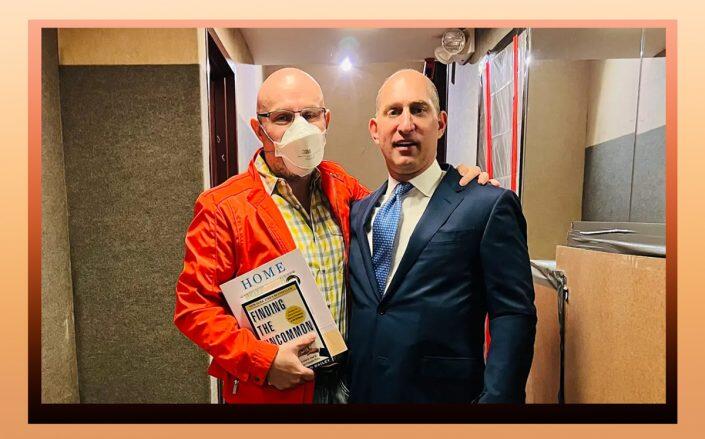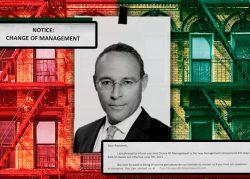The tenant-holdout saga stifling an Upper West Side condo conversion has triggered a personal feud between two high-profile real estate attorneys.
Y. David Scharf, representing the Naftali Group, filed a suit Monday accusing attorney Adam Leitman Bailey of abusing the legal system to delay the developer’s project at 215 West 84th Street. Naftali is seeking $25 million in damages from Bailey, who was hired by the holdout tenant.
“Adam is not seeking a legitimate judicial outcome here. He’s abusing the system for delay’s sake to force a cash payout,” said Scharf, a co-managing partner at Morrison Cohen and chairman of the law firm. “Frankly, he’s treating this as a game.”
Bailey denies the claims and calls the suit one of many attempts to pressure his client, a longtime building resident, to leave.
“In my 27-year career, I’ve never seen a developer or landlord harass a tenant and their attorney this atrociously,” Bailey said in an interview. “The lawsuit filed against me for $25 million lacks any basis in law or fact. They didn’t bother to file a claim that they can win on.”
The drama began after Naftali bought Eagle Court, a 128-unit apartment complex, for $71 million in June with plans to upgrade or replace the building. The developer cleared out every tenant except penthouse resident Ahmet Ozsu, who has turned down buyout offers is blocking the condo conversion by not vacating his unit.
Media outlets from the New York Times to the Daily Mail have covered the standoff, which escalated as both sides dug in.
Scharf says Bailey and his firm have orchestrated a “media strategy” to disparage Naftali and incorporated it into their defense. He cites an affidavit signed by Ozsu that refers to a February article in The Real Deal about the dispute.
Bailey denies litigating the case in the press, pointing out that he only began representing Ozsu after the TRD story was published. Steven Wagner, a veteran attorney who had just joined Bailey’s firm, was quoted in the article as an expert on condo conversions who had represented both holdout tenants and landlords trying to oust them. The affidavit was filed after Bailey took Ozsu’s case.
But Scharf adds another dimension to the claim, arguing that Bailey is stoking the media fracas as a “shameless act of self-promotion.” Scharf points to a photo Bailey provided the New York Post of Ozsu holding a book written by Bailey, with the front cover facing the camera.

Ahmet Nejat Ozsu and Adam Leitman Bailey (Adam Leitman Bailey)
Bailey points out that lawyers have the right to discuss their cases with the media, and that chilling such speech would be an assault on the First Amendment.
“One of the most sacred institutions we have is the freedom of the press,” Bailey said. “For David Scharf to attack it is unimaginable and antidemocratic. If he’s unhappy with democracy, go to another country.”
Buried in the complaint is an episode illustrating just how contentious the standoff has become. In surveillance camera footage obtained by TRD, two police officers arrive outside Ozsu’s apartment as he is speaking with reporters inside.

215 West 84th Street (Google Maps)
Bailey meets the officers and building manager in the hall and after several minutes their conversation turns heated. The lawyer demands that the officers arrest the building manager for placing a loud fan near Ozsu’s apartment, which Bailey alleges was an act of harassment. The officers refuse.
“You can say it’s wrong to have a noise machine there, but if there’s no intent, and you can’t prove there’s intent, you can’t arrest somebody based off that. That’s ridiculous,” one officer said.

Y. David Scharf of Morrison Cohen
Scharf alleges Bailey’s demand was made to gain an edge in the standoff’s civil case and thus violates the New York state bar’s code of conduct. Michael Ross, Bailey’s ethics attorney, counters that the building manager acted illegally in placing the fan outside Ozsu’s apartment, which justifies Bailey’s demands for his arrest.
“Adam is up to some of his old and inappropriate tricks,” said Scharf. “This is no different than facing off against any bully. You have to take the fight to the bully and stand up for your rights.”
Bailey said when he is served with the lawsuit, he will file a motion to dismiss it.
“The bottom line is that they’re bullying and harrassing my client again through me,” he said.
Read more


As the lawyers jousted, Ozsu scored a win on Wednesday when a state judge paused a separate, $25 million suit Naftali filed against him seeking damages for his refusal to move out.
The judge wrote that pursuing an eviction in housing court while seeking damages in Supreme Court would be a “waste of judicial resources,” and put the latter on ice until the eviction case is decided. That case is expected to drag on for months, as Ozsu has applied for rental assistance from the state, which automatically halts eviction proceedings for up to a year.
